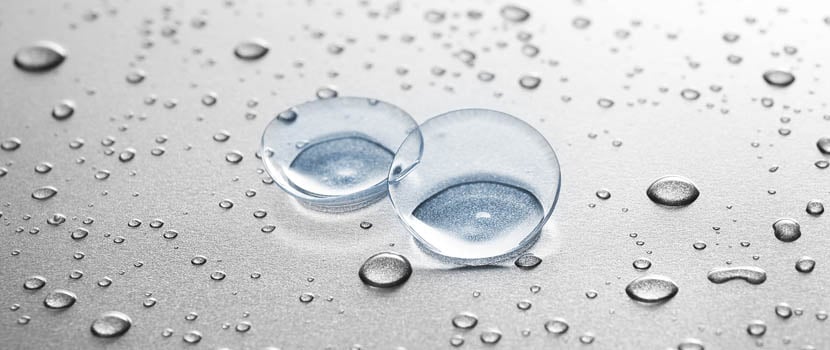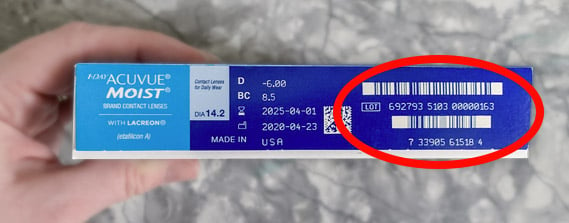Why Contacts & Water Don’t Mix
Most contact lens wearers are not aware of the risks associated with water touching their contacts. Don’t assume that just because water is clean enough to drink, it’s safe for contacts.

Why is Water Bad for Contacts?
Water has plenty of bacteria, chemicals, and microorganisms that should not touch contact lenses (even if it is purified). Water also doesn’t match the acidity of tears. This will make contacts lose their shape, uncomfortably stick to your eyes, and blur your vision.
According to the Centers for Disease Control and Prevention (CDC), a dangerous ameba called Acanthamoeba is found in many sources of water such as tap water, well water, and lake water. Acanthamoeba can lead to a dangerous and painful infection called Acanthamoeba Keratitis. This infection may take over a year to treat and even lead to needing a corneal transplant or vision loss.
Can You Store Contacts in Water?
No, storing contacts in water is bad for contact lenses and your eyes. Lenses need to be stored in the correct solution. Water has no disinfectants and should not be used to rinse, clean, disinfect, or store contacts. The contacts will absorb the chemicals or bacteria that are in the water and transfer them to your eyes leading to infections.
Can You Swim in Contacts?
You should avoid swimming in contacts. Take contact lenses out and wear prescription swim goggles or wear regular swim goggles with your contacts in as long as the goggles are waterproof and tightly secured.
Can You Wear Contacts in the Shower?
No, you should not shower while wearing contact lenses. You don’t want any water droplets splashing onto your contacts, so make sure they are in a contact lens case while you’re showering. Dry hands completely before putting contacts back in.
Avoid any water touching your contact lenses. Always use the solutions and cleaners prescribed by an eye care specialist to care for contacts. If water gets into your eyes while wearing contacts, you should remove, clean, and disinfect your lenses as soon as possible. If you’re wearing daily disposable contact lenses, you should replace them with a fresh pair.

